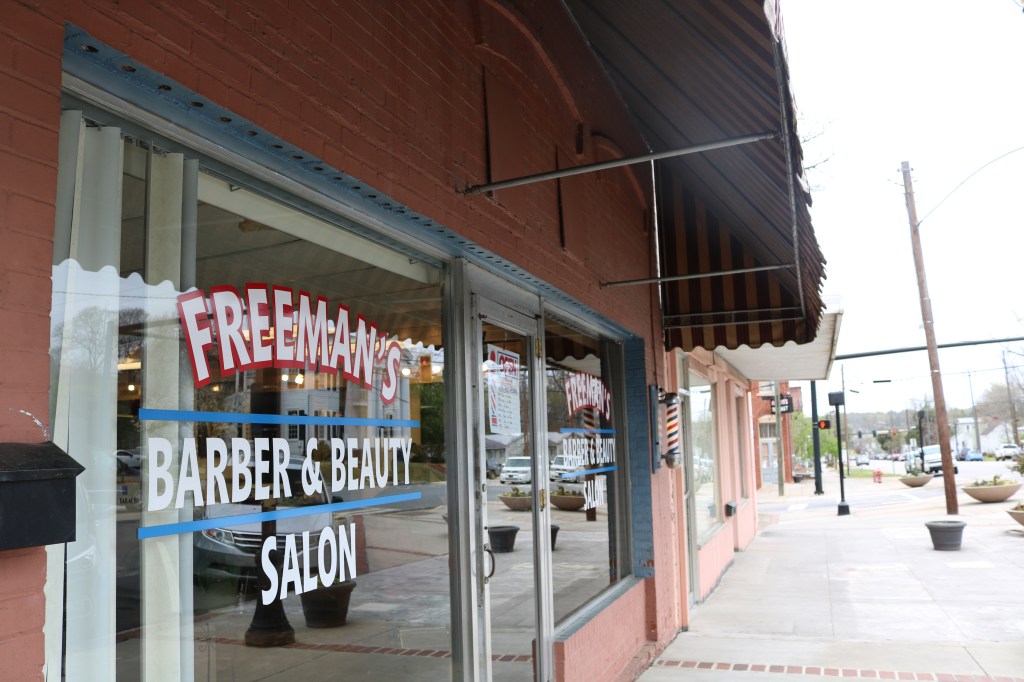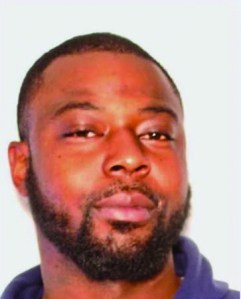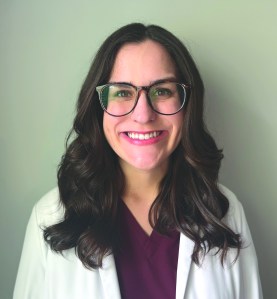Freeman’s, nonprofit group promote importance of organ donation
Published 10:15 am Saturday, March 31, 2018

- Representatives from LifeLink, Georgia’s designated organ procurement organization, discuss the importance of organ donation during a recent event at Fort Valley State University.
With more than 5,000 Georgians on the waiting list for a lifesaving medical procedure, a local barbershop is partnering with a statewide organization to spread awareness of a widespread yet preventable issue.
Trending
For more than 30 years, the LifeLink Foundation has facilitated donations of organs and tissue to needy patients in Georgia, Florida, South Carolina, Puerto Rico, and the U.S. Virgin Islands. Through its status as Georgia’s official organ procurement organization, in that time LifeLink has saved thousands of lives by working with hospitals to identify potential donors and educating people on the benefits of donation. With more than 115,000 people nationwide awaiting lifesaving organ transplants, the organization is planning a trip to Milledgeville next week.
“Next weekend, I’ll be setting up a table in front of the barbershop with literature and information,” said LifeLink Education Specialist Asha Ellen from Milledgeville’s Freeman’s Barbershop Thursday. “We’ll be able to talk to people as they’re passing by and coming into the shop, first to see if they’re registered as organ donors, and if they’re not just to have a dialogue as far as what prevented them from registering and give them some information that will hopefully help educate them about the process. I’ll actually be able to register people on-site if they’re not currently registered on their driver’s license.”
From 4 to 6 p.m. Friday and from 10 a.m. to noon Saturday, Ellen will be speaking to people in front of Freeman’s about the statistics of organ donation. Although this week’s spring weather will likely draw people to the entirety of the downtown area, the tent’s location in front of Freeman’s will give Ellen an opportunity to reach much-needed donors in the African-American community.
“Clinically, the success rate of a transplant seems to be greater when the donor and recipient are of the same ethnic background, and this seems to be both with kidneys and with livers,” she said. “Throughout the United States, about 80 percent of those that are waiting for a lifesaving organ are waiting for a kidney, and a lot of that is attributed to high blood pressure and diabetes. The sad thing about it is that those are things, particularly type 2 diabetes and high cholesterol, are all factors that we can manage and control.”
Because of the damage that ailments like high blood pressure and diabetes can do to the kidneys, the small blood-filtering organs are near-constantly in short supply. Due in part to higher rates of these diseases among African-Americans, black Georgians make up 63 percent of the more than 5,000 people on the transplant list and 67 percent of those waiting for kidneys overall. In light of the increased need for donors among the African-American community, barbershop employees said they are more than happy to help Ellen and LifeLink in their efforts.
“One of the things we need to do is explain to African-Americans how important it is to be an organ donor,” said Freeman’s manager and master barber, Don Reese. “I’ve been an organ donor for about 20 years, but bringing this [campaign] to African Americans is important because nobody has ever told us how much we need organ donors. … We always take it as a negative and want to take out organs with us, but somebody might be able to use it and [when you’re gone], you can’t do anything with it. You might even be able to save someone’s child.”
Trending
Although kidneys are undoubtedly the most in-demand organs on the transplant list, they are far from the only organs that can save people’s lives. While doctors can safely transplant up to eight vital organs and a multitude of different tissues, only 2 percent of vital organ donors end up being a match for transplantation, and the most effective way to guard against organ failure is to address risk factors from the start.
“In addition to educating people about organ donation and transplantation, LifeLink focuses heavily on preventative care measures and lifestyle choices,” said Ellen. “People have to register to be organ donors — if all of us who were eligible registered to be donors, there would be no waiting list. The other way to keep the waiting list down is to not continue to add to the list, and by addressing these issues and providing programs where people can lead healthy lifestyles. Certain changes can make a big difference in whether you have any type of organ failure.”
For more information or to officially register as an organ donor, visit LifeLink’s website at www.lifelinkfoundation.org.





